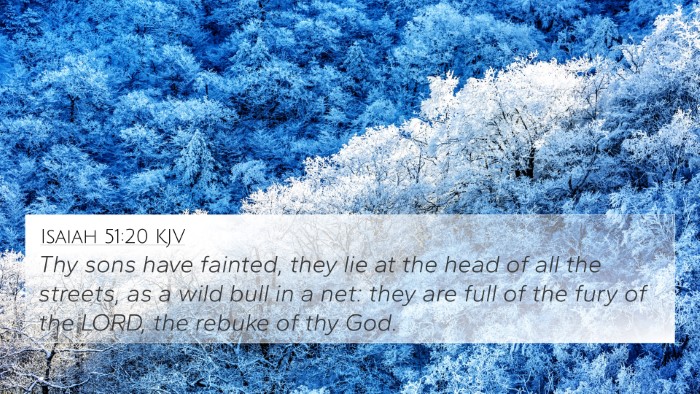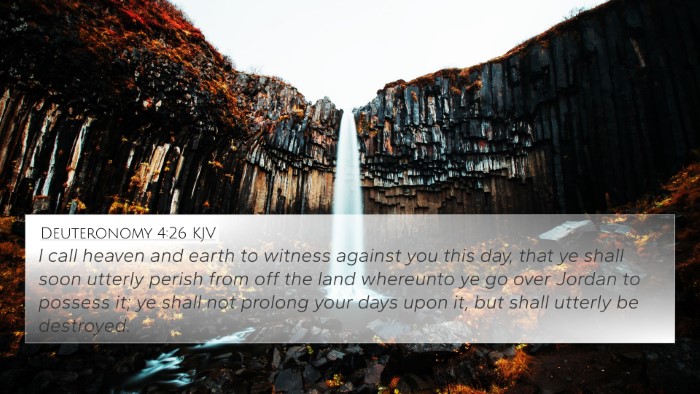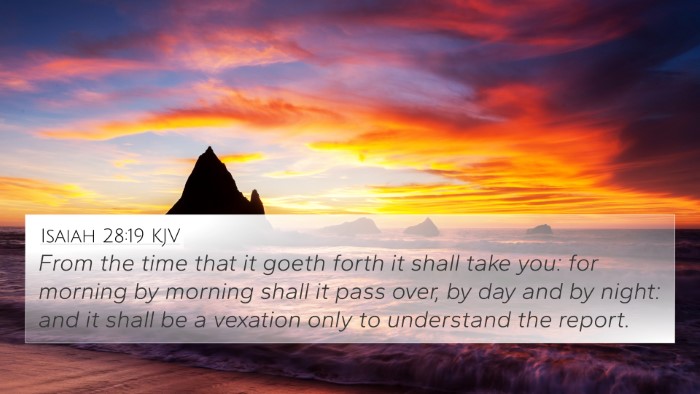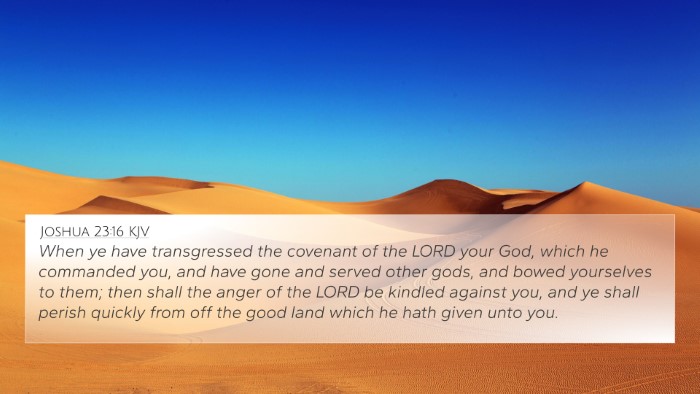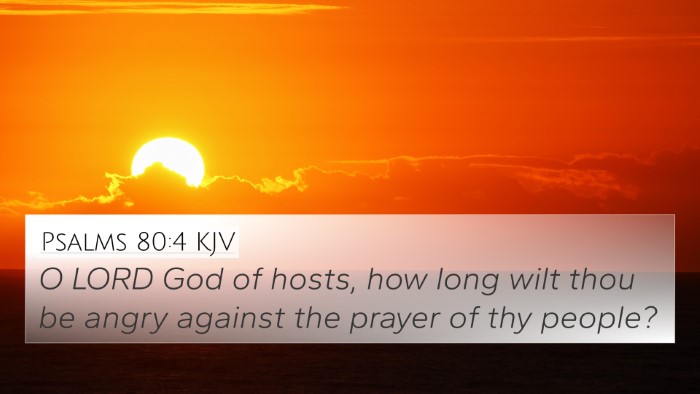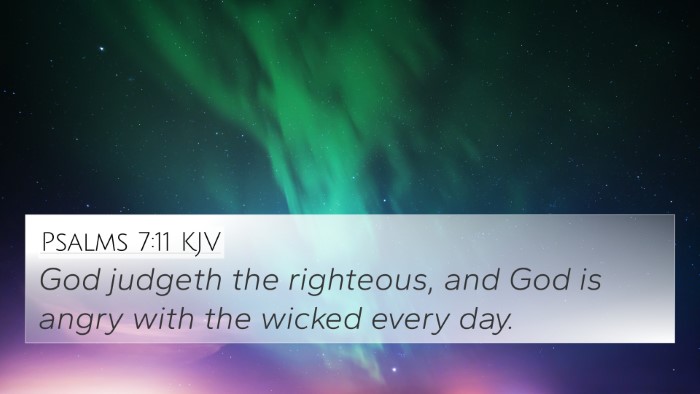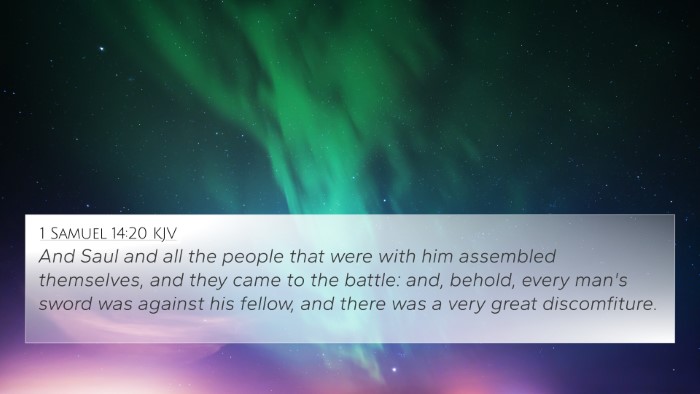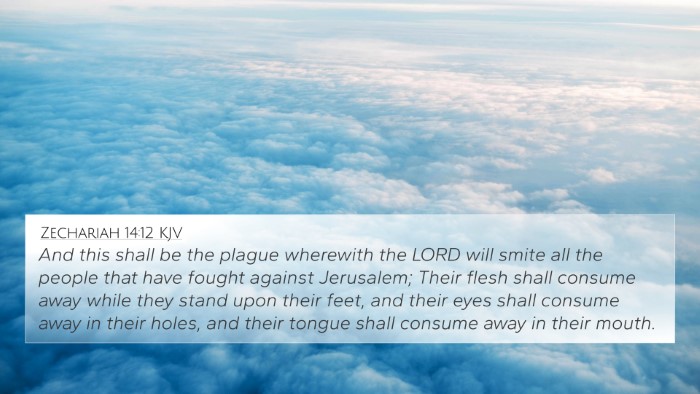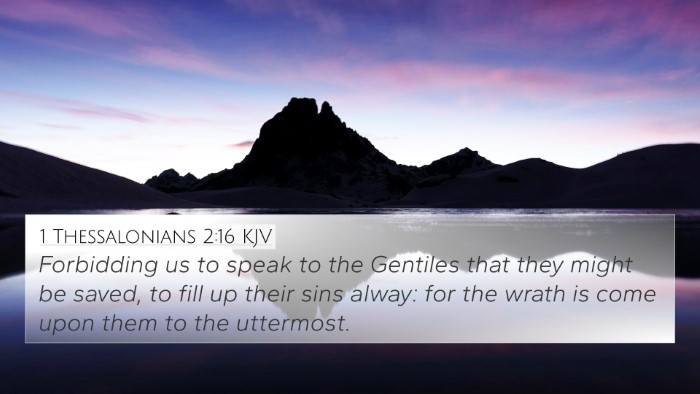Understanding Deuteronomy 28:20
Deuteronomy 28:20 states:
"The Lord will send upon you curses, confusion, and rebuke in all that you undertake to do, until you are destroyed and perish quickly, on account of the wickedness of your deeds, because you have forsaken me."
Verse Context and Summary
This verse comes from the section known as the blessings and curses of the covenant, which highlights the outcomes of Israel's obedience or disobedience to God's commandments. Understanding the implications of Deuteronomy 28:20 requires examining the surrounding passages to fully grasp the consequences of forsaking God's laws.
Commentary Insights
Let's draw insights from Matthew Henry, Albert Barnes, and Adam Clarke regarding the meaning and significance of this verse.
Matthew Henry's Commentary
Matthew Henry emphasizes that this verse serves as a solemn warning. He notes that the consequences stated—curses and confusion—are not arbitrary; rather, they stem from a deliberate turning away from God. God's anger is mentioned here as a direct outcome of neglecting His commandments, suggesting a divine principle where rebellion against God's will leads to significant adverse effects.
Albert Barnes' Commentary
Albert Barnes adds that this verse illustrates the seriousness with which God addresses the behavior of His people. The mention of "curses" reflects the comprehensive nature of God's judgment—impacting various aspects of life. He elaborates that "confusion" implies a state of turmoil that comes upon those who stray, making it clear that God’s absence can lead to moral and societal decay.
Adam Clarke's Commentary
Adam Clarke provides a thorough interpretation by explaining that the "rebuke" mentioned is a direct consequence of an individual or nation turning away from God. He highlights that such curses are both socially and personally destabilizing, leading to a rapid unraveling of well-being for those who disregard divine guidance. Clarke also poses a question about the permanence of this state, noting that repentance can lead to restoration.
Thematic Connections and Cross-References
Deuteronomy 28:20 is interconnected with several other verses throughout the Bible. Below are key cross-references that illustrate these connections:
- Leviticus 26:14-16 - Stresses the consequences of disobedience to God's commands.
- Jeremiah 11:3 - Discusses the curses that come upon those who break the covenant.
- Isaiah 24:1-3 - Portrays the desolation that follows disobedience to God.
- Galatians 3:10 - Explains that those under the law are subject to its curses if they do not continue in all its commands.
- Romans 1:18 - Indicates God's wrath against ungodliness and the consequences of rejecting Him.
- Proverbs 3:34 - Affirms that God opposes the proud, implying curses for those who resist Him.
- Hebrews 10:26-27 - Warns of judgment for willful sinning after receiving grace.
Connections between Bible Verses
The significance of Deuteronomy 28:20 extends beyond its immediate context, as it highlights fundamental truths of Scriptural cross-referencing. Here are a few broad themes:
- Disobedience Leads to Judgment: The theme of divine retribution for disobedience runs throughout the Bible.
- The Importance of Covenant: Many scriptures discuss the critical nature of the covenant and the blessings or curses associated with keeping it.
- Righteousness Brings Blessings: Stipulations in the Bible suggest that following God's statutes leads to societal and individual prosperity.
Practical Application: Tools for Bible Cross-Referencing
For those studying Deuteronomy 28:20 and its implications, using tools for Bible cross-referencing can enhance understanding. Here are some useful resources:
- Bible Concordance: Look up terms related to "curses" and "blessings" for deeper study.
- Bible Cross-Reference Guide: Utilize guides that map key themes and ideas across scripture.
- Cross-Reference Bible Study: Engage in methods that connect related verses through shared themes.
Conclusion
Deuteronomy 28:20 encapsulates critical theological concepts that recur throughout scripture. Its warnings serve as timeless reminders of the consequences of forsaking God's wisdom. By employing tools for cross-referencing Biblical texts, believers can enhance their understanding and application of these profound biblical truths.





